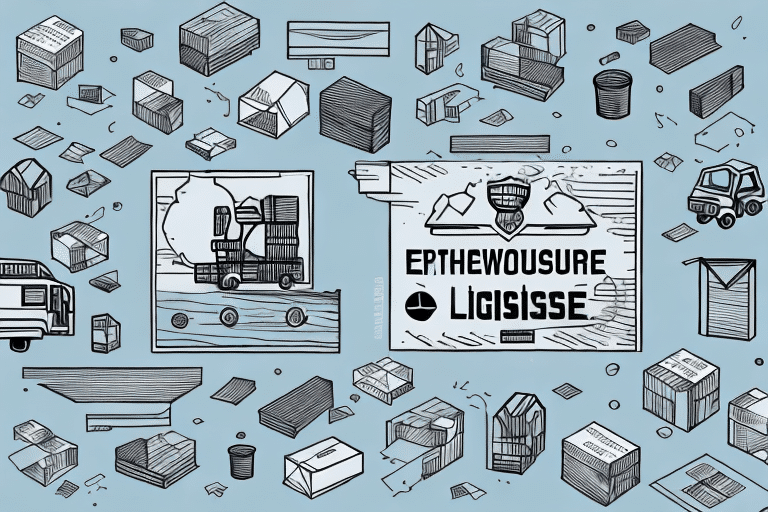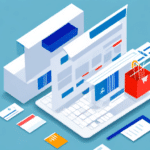Leveraging 3PLs for Your Ecommerce Business: A Guide for the Growth Phase
As your ecommerce business expands, so too do the complexities of your fulfillment operations. Leveraging third-party logistics providers (3PLs) can help manage warehousing, shipping, and other logistics needs efficiently. This guide explores everything you need to know about 3PLs and how they can facilitate sustainable growth for your ecommerce business.
Understanding Third-Party Logistics (3PLs)
A 3PL is a company that offers outsourced logistics services, encompassing the management of procurement and fulfillment activities. Ecommerce businesses utilize 3PLs to handle various components of their fulfillment process, including inventory storage, order packaging, and shipping to customers. According to a Statista report, the global 3PL market is expected to reach $1.3 trillion by 2024, highlighting the growing importance of these services in the ecommerce sector.
3PLs are crucial for ecommerce businesses as they streamline and optimize the fulfillment process, allowing companies to focus on other critical areas such as marketing and product development. By outsourcing logistics, businesses can reduce the risk of errors or delays and scale operations swiftly in response to increasing demand.
Types of 3PL Providers
There are various types of 3PL providers, each specializing in different aspects of logistics:
- Transportation-Based 3PLs: Focus on shipping and transportation services.
- Warehouse/Distribution-Based 3PLs: Provide warehousing and distribution services.
- Forwarder-Based 3PLs: Specialize in forwarding and managing shipments across borders.
- Financial-Based 3PLs: Handle billing and payment processing related to logistics.
- Information-Based 3PLs: Offer logistics information systems and technologies for better visibility.
Choosing the right type depends on your specific business needs and the scale of your operations.
Choosing the Right 3PL Partner
Selecting an appropriate 3PL partner is critical for the success of your ecommerce business. Consider the following factors when evaluating potential partners:
Experience and Expertise
Ensure the 3PL has a proven track record in your specific industry. For instance, if you sell perishable goods, choose a 3PL experienced in handling temperature-sensitive products.
Technology and Integration Capabilities
Verify that the 3PL uses advanced technology for inventory management, order tracking, and integrates seamlessly with your ecommerce platform. Shopify and Magento are commonly supported platforms.
Location and Scalability
Consider the geographic location of the 3PL’s warehouses to optimize shipping times and costs. Additionally, assess whether the 3PL can scale its services in line with your business growth.
Customer Service and Communication
Effective communication is vital. Choose a 3PL that offers robust customer service and transparent communication channels to address any issues promptly.
Cost-Benefit Analysis of Using a 3PL
While outsourcing to a 3PL can offer significant benefits, it is essential to conduct a thorough cost-benefit analysis.
Costs Involved
Typical costs include warehousing fees, shipping charges, and additional service fees. It's also important to account for any hidden costs, such as setup fees or penalties for order changes.
Benefits and Savings
Outsourcing can lead to cost savings through economies of scale, reduced need for in-house staff, and minimized risk of errors. According to a Forbes article, businesses can save up to 15% on overall logistics costs by partnering with a 3PL.
Industry-Specific Considerations
Different industries may have unique requirements, such as specialized packaging or compliance with certain regulations. Ensure the 3PL can cater to these specific needs.
Benefits of Outsourcing Fulfillment to a 3PL
Outsourcing fulfillment to a 3PL offers numerous advantages:
Scalability and Flexibility
3PLs can easily scale operations in response to fluctuating demand, allowing businesses to handle peak seasons without overinvesting in infrastructure.
Access to Expertise and Technology
3PLs bring specialized knowledge and advanced technologies that enhance efficiency and accuracy in the fulfillment process.
Improved Customer Satisfaction
Faster shipping times, accurate order fulfillment, and reliable tracking contribute to enhanced customer experiences and higher retention rates.
Integrating Your Ecommerce Platform with a 3PL Provider
Seamless integration between your ecommerce platform and a 3PL provider is essential for efficient order management. Here are some tips to ensure successful integration:
Choose Compatible Platforms
Select a 3PL that supports integration with your ecommerce platform, such as Shopify, Magento, or other popular systems.
Clear Communication of Integration Needs
Clearly articulate your integration requirements and work closely with the 3PL to ensure that all systems communicate effectively, minimizing disruptions to your operations.
Testing and Monitoring
Conduct thorough testing of the integration before full-scale implementation and regularly monitor the system to promptly address any issues.
Overcoming Challenges When Working with a 3PL
While partnering with a 3PL offers many benefits, it can also present challenges. Here’s how to overcome common issues:
Effective Communication
Establish clear communication channels and regular check-ins to ensure both parties are aligned on expectations and performance.
Managing Expectations
Set realistic expectations regarding timelines, costs, and performance metrics to avoid misunderstandings and ensure a smooth partnership.
Handling Unexpected Fees
Choose a 3PL with a transparent fee structure and carefully review agreements to prevent unexpected costs from arising.
Measuring Success: KPIs for 3PL Partnerships
Tracking key performance indicators (KPIs) is essential to evaluate the success of your 3PL partnership. Important KPIs include:
- Shipping Times: Measure the average time taken from order placement to delivery.
- Order Accuracy Rates: Track the percentage of orders fulfilled without errors.
- Customer Satisfaction Rates: Assess customer feedback and satisfaction related to fulfillment services.
- Cost per Order: Calculate the total fulfillment costs divided by the number of orders.
Regular monitoring of these KPIs helps identify areas for improvement and ensures that the 3PL meets your business objectives.
Case Studies: Successful 3PL Partnerships in Ecommerce
Many ecommerce businesses have successfully leveraged 3PLs to drive growth. For example:
- Bonobos: Utilized a 3PL to enhance shipping speeds and reduce costs, enabling rapid scaling during peak seasons.
- Birchbox: Partnered with a 3PL to streamline fulfillment operations, allowing the company to focus on marketing and product development.
These success stories demonstrate the significant impact that effective 3PL partnerships can have on business growth and operational efficiency.
Future Trends in 3PL Services Affecting Ecommerce
The 3PL industry is evolving with new trends that will shape the future of ecommerce logistics:
- Automation and Artificial Intelligence: Increasing use of automated warehouses and AI-driven logistics solutions to enhance efficiency.
- Sustainability: Greater focus on eco-friendly practices, such as green packaging and carbon-neutral shipping options.
- Omnichannel Fulfillment: Integration of multiple sales channels to provide seamless customer experiences across platforms.
- Blockchain Technology: Adoption of blockchain for improved transparency and traceability in the supply chain.
Staying abreast of these trends can help businesses select 3PL partners that are equipped to meet future demands and maintain a competitive edge.
Frequently Asked Questions About Using a 3PL
Here are some common questions ecommerce businesses have about using 3PLs:
- What services do 3PLs offer? They offer a range of services including warehousing, inventory management, order fulfillment, shipping, and returns processing.
- How much does it cost to use a 3PL? Costs vary based on services required, volume of orders, and specific business needs. It's essential to request detailed quotes from potential 3PL partners.
- How do I choose the right 3PL provider? Evaluate based on experience in your industry, technology capabilities, scalability, location, and customer service quality.
- What are the benefits of using a 3PL for my ecommerce business? Benefits include operational efficiency, cost savings, scalability, access to expertise and technology, and improved customer satisfaction.
Understanding these aspects can help you make informed decisions about integrating 3PL services into your ecommerce strategy.
Conclusion: Why Outsourcing Fulfillment to a 3PL is a Smart Move for Growing Ecommerce Businesses
Outsourcing fulfillment to a 3PL is a strategic move for growing ecommerce businesses. By leveraging the expertise, resources, and advanced technologies of a 3PL, businesses can enhance their fulfillment processes, boost customer satisfaction, and allocate more resources to growth-oriented activities like marketing and product development. Ensure you choose the right 3PL partner, conduct a thorough cost-benefit analysis, and continuously monitor key performance indicators to foster a successful and enduring partnership.






















